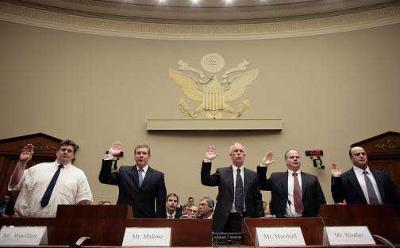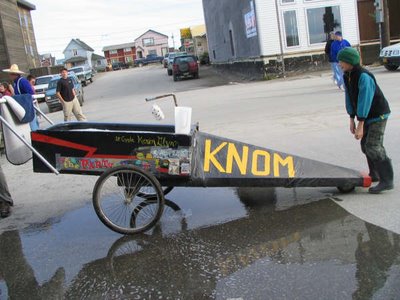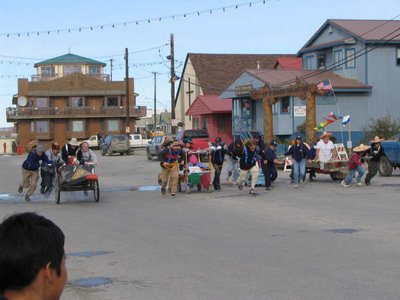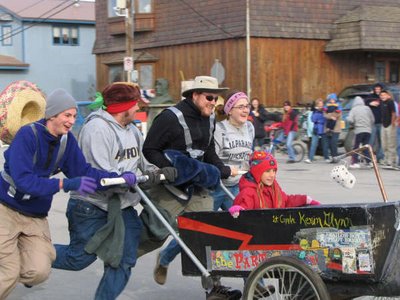I don't know who'll get my support this fall in the governor's race but I do know that I won't be voting for the ballot measure that would shorten the legislative session to 90 days.
Representative Jay Ramras, who's one of the sponsors of the measure, trumpeted it in the ADN yesterday morning:
Some legislators say they just don't want to be rushed, but I can tell you the first 30 days of a legislative session serve no productive purpose. Requiring a 90-day session -- as the initiative proposes -- is really about valuing time. When we value time, many of us believe, it will result in a better process.
I can understand that Jay doesn't want his time wasted and if, as he claims, "some of the best and brightest former legislators" have proposed this in the past, it makes sense to give it some honest thought.
When I do that, the closest parallel I can think of is a semester of college. Like a legislative session, the real work gets done at the end - final exams, term papers, and, of course, grades. It's easy to see how students "waste" the first part of the semester, participating in extra-curricular activities, playing sports, meeting new people, and, yes, partying.
But it's that first part of the semester that lays the groundwork for the all the final work. When I was in grad school, my course grades generally depended on one paper handed at the end of class. I generally wrote that paper in the last week or two of the term but when I wrote it, the first thing I did was review all my notes from the class, trying to get a sense of the scope of topics we covered and what my paper should reflect and include. In many cases, it was something I learned in the first weeks of class that enabled me to write a quality paper (or so I thought).
My point is that while the product may not be visible until the very end, the product is no less dependent on all of what comes before it. I haven't experienced all the intricacies of a legislative session or those cocktail parties, but I think the same is true for a legislative session.
The issues confronting Alaska these days - the terms of a natural gas pipeline, improving educational performance, ensuring public safety across the state, the relationship between the state and the oil industry, and so on - require more consideration and thought, not less. If lawmakers would rather spend their time at cocktail parties, I would hope that their performance would reflect that and their constituents would respond appropriately. But the solution is decidedly not to reduce the amount of time lawmakers have to consider these issues.










